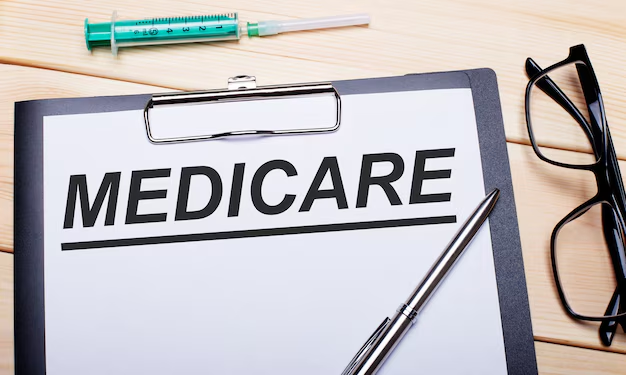Your Guide to What Is a Ptan For Medicare
What You Get:
Free Guide
Free, helpful information about Medicare FAQ and related What Is a Ptan For Medicare topics.
Helpful Information
Get clear and easy-to-understand details about What Is a Ptan For Medicare topics and resources.
Personalized Offers
Answer a few optional questions to receive offers or information related to Medicare FAQ. The survey is optional and not required to access your free guide.
Understanding PTAN for Medicare: What You Need to Know
Navigating the complex world of Medicare can often feel overwhelming, with its myriad acronyms and procedures. One such term that healthcare providers must grasp is PTAN—the Provider Transaction Access Number. This unique identifier plays a crucial role in the Medicare billing process, and understanding it is essential for seamless operations in any medical practice.
What is a PTAN?
A Provider Transaction Access Number (PTAN) is a unique identifier assigned by Medicare to healthcare providers. It's a critical component in the billing process, acting as a direct link between providers and the Medicare system. While the National Provider Identifier (NPI) number is uniform across all health services and payers, the PTAN is specifically Medicare-related.
The Role of PTAN in the Medicare System
- Verification: PTAN confirms a provider's eligibility to bill Medicare for services rendered.
- Billing: It’s used to process payments and ensure providers are reimbursed correctly.
- Communication: PTAN facilitates communication between healthcare providers and Medicare contractors regarding claims and administrative tasks.
Why is PTAN Important?
Given its role, a PTAN is indispensable for healthcare providers accepting Medicare patients. Without it, providers cannot bill Medicare, which could impact their ability to serve this patient demographic effectively. Moreover, issues with PTAN registration or usage can lead to billing delays, financial losses, and administrative headaches.
How Providers Can Obtain a PTAN
After obtaining an NPI, healthcare providers must enroll in the Medicare program, usually through the Provider Enrollment, Chain, and Ownership System (PECOS). Post-enrollment, Medicare assigns a PTAN. This number is sometimes confused with the NPI, but both have distinct purposes within the Medicare billing framework.
Transitioning to Broader Financial Assistance Topics
While PTAN is a critical component within the Medicare ecosystem, many patients and providers alike will intersect with broader financial assistance and government aid programs. Understanding these can greatly benefit both parties, especially in managing healthcare costs.
Exploring Government Aid Programs
Several government initiatives complement Medicare services, offering financial support and relief to those eligible:
- Medicaid: Offers healthcare coverage for low-income individuals, often working in tandem with Medicare for those eligible.
- Medicare Savings Programs: These assist with Medicare Part B premiums and other costs, a boon for patients who might struggle with out-of-pocket expenses.
- Low-Income Subsidy: Helps Medicare beneficiaries with limited incomes pay for prescription drugs.
Financial Assistance and Debt Relief Options
Medical expenses can lead to financial distress. Hence, exploring debt relief and financial assistance options can be empowering:
- Credit Counseling Services: These offer guidance to manage medical debt effectively.
- Medical Debt Consolidation Loans: For some, consolidating various medical bills into a single loan with a lower interest rate is an appealing option.
- Non-Profit Assistance Programs: Many organizations provide financial counseling and aid to those burdened by medical bills.
Educational Grants and Opportunities
Healthcare providers seeking to expand their expertise or medical practices can benefit from educational grants:
- Health Resources and Services Administration (HRSA): Offers scholarships and loan repayment programs to healthcare professionals.
- National Health Service Corps (NHSC): Provides loan repayment for providers working in underserved areas.
Supporting Your Financial Future: Quick Reference Guide
🤝 Medicare Savings Programs
Helps with premiums and other costs for eligible beneficiaries.
💊 Low-Income Subsidy
Reduces costs of prescription drugs for those with modest incomes.
💡 Credit Counseling Services
Assists in managing and reducing medical debt effectively.
🏥 Non-Profit Assistance Programs
Offers financial aid and counseling for those struggling with medical bills.
🎓 Health Resources and Services Administration (HRSA)
Provides funding and grants for healthcare workers seeking further education.
🚑 National Health Service Corps (NHSC)
Loan repayment programs for providers serving in high-need areas.
Understanding your PTAN and available financial avenues is not just about smooth operations; it’s about empowering providers and patients towards better healthcare experiences and financial well-being. As the medical landscape evolves, staying informed of these resources ensures a robust framework for personal and professional success.
What You Get:
Free Medicare FAQ Guide
Free, helpful information about What Is a Ptan For Medicare and related resources.

Helpful Information
Get clear, easy-to-understand details about What Is a Ptan For Medicare topics.

Optional Personalized Offers
Answer a few optional questions to see offers or information related to Medicare FAQ. Participation is not required to get your free guide.


Discover More
- a Medical Provider That Accepts Medicare Assignment Must
- a Medical Provider That Accepts Medicare Assignment Must Quizlet
- a Medicare Patient Received Treatment That Isn't Covered By Medicare
- a Medicare Patient Receives Treatment That Isn't Covered By Medicare
- a Medicare Supplement Basic Benefit Is Quizlet
- a Medicare Supplement Companies
- a Medicare Supplement Policy Is Quizlet
- a Medicare Supplement Policy Must Not Contain Benefits Which
- a Patient Received Treatment In August Medicare
- Am I Eligible For Medicare
